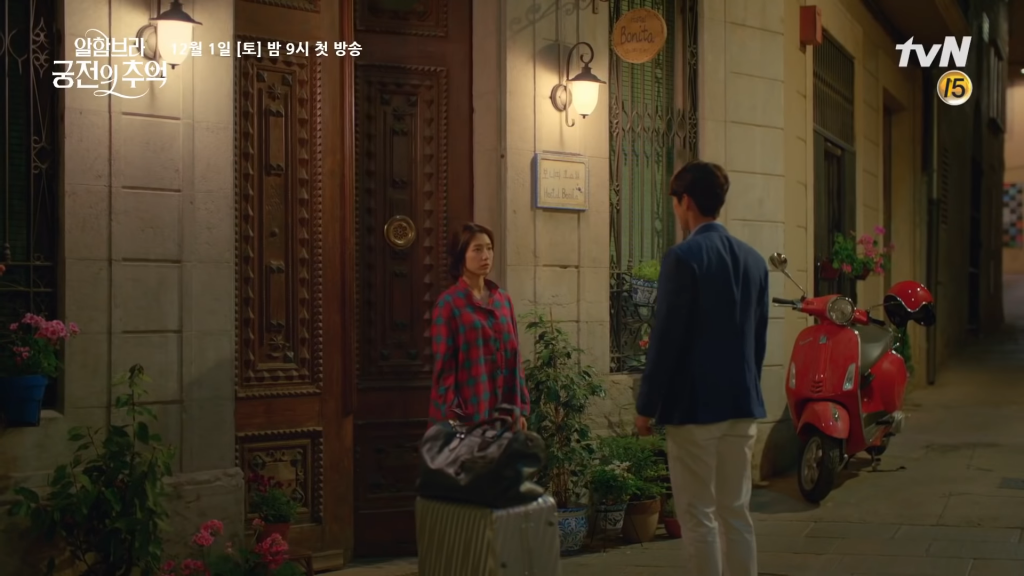
Memories of the Alhambra, starring Park Shin-hye and Hyun Bin, is billed as a sci-fi/fantasy and melodrama, with a healthy sprinkling of suspense. At its heart is the collision of worlds and opposites: augmented reality (AR) and the real world, tradition and futurism, rich and poor. One of the most anticipated dramas of the year, Memories promised the ingredients for a stellar show with a unique and refreshing twist. And so far it has largely delivered.
The following contains light spoilers for episodes 1-8 of Memories of the Alhambra.
The drama follows Yoo Jin-woo (Hyun Bin), a tech investment company CEO drawn to Granada, Spain in pursuit of purchasing a groundbreaking AR video game. However, the creator of the game, Jung Se-joo (Park Chanyeol), mysteriously vanishes before Jin-woo is able to meet him. Instead, this cynical CEO crosses paths with Jung’s sister Hee-joo (Park Shin-hye), a hostel-owner and former guitarist. Together they get caught up in a mystery that blurs the lines between fiction and reality.
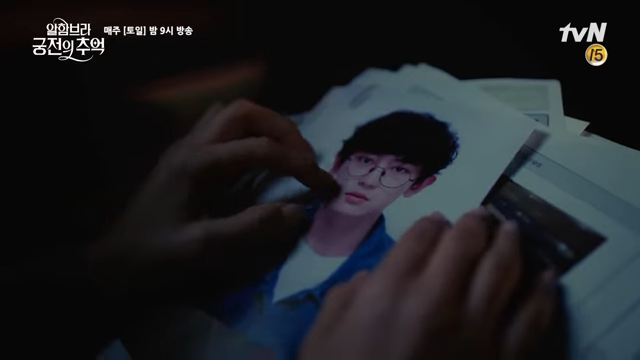
A disclaimer up-front: the genres associated with Memories are totally up my street and it’s a rare combination in K-dramaland. When I heard that Ahn Gil-ho, director of Stranger, and writer Song Jae-jung of W fame, were helming the production I was doubly intrigued. Both had deftly handled the suspense and sci-fi genres with their past offerings and I was excited to see what they could do with an AR premise. 2018 has seen a couple of AI K-dramas this year (I’m Not a Robot and Are You Human Too?), so Memories of the Alhambra’s approach to technology and futurism was from a refreshingly unique angle.
Right off the bat we have a setup that emphasises the polar opposite: the hi-tech AR gaming concept set in historically-rich Granada. Such a premise requires a good deal of world-building and the show largely succeeds in doing this, whilst keeping a few secrets up its sleeve. Viewers are walked through the basic premise of the game: on the surface a standard role-playing setup with users completing quests to level up and advance. Cinematography effects, including the on-screen user view, complete with the classic health, level and weapon information, helps immerse the audience and allows Memories to fully embrace the AR concept.
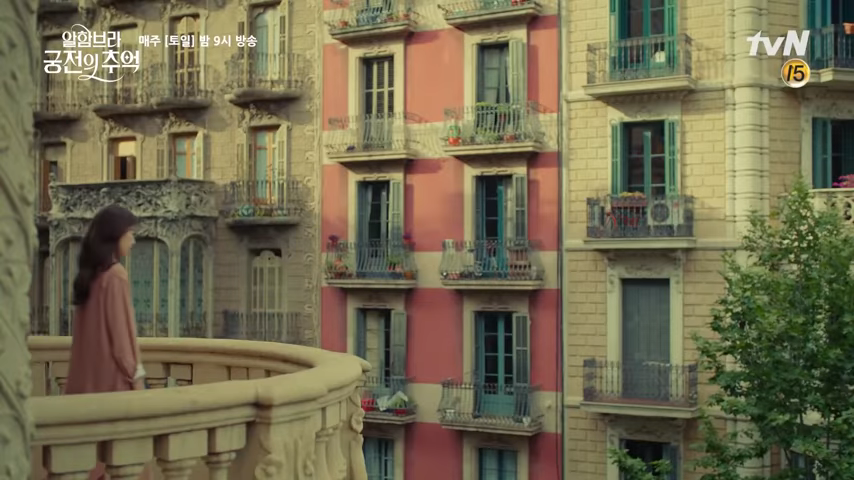
Juxtaposed with this is the traditional Granada setting. Filming on-location overseas is not new but prolonged scenes are and the promos for Memories heavily trailed its distinctive location. I’ve visited Granada and the city has a genuinely whimsical and otherworldly vibe. Memories of the Alhambra captured this perfectly. The wide shots of scenery and historical landmarks really lend themselves to the Spanish medieval game setup. The
Not only does Memories make good use of its on-set location, there was also a decent amount of interaction between the characters and locals, enhancing the concept of duality. Where some on-location filming can feel a little passive, Memories does well to make it feel authentic. There is also a healthy smattering of Spanish, particularly by Park Shin-hye’s character, which adds depth to the backstory that she has been living in Spain since childhood.
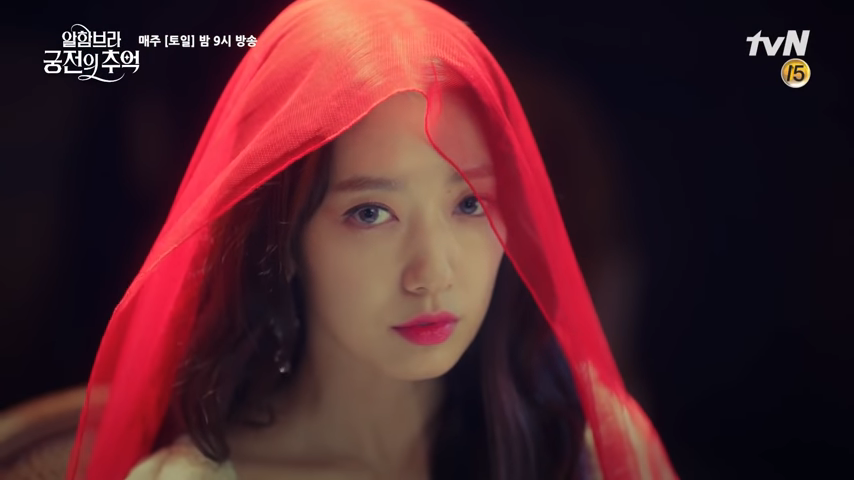
I adored how the classical guitar piece, “Memories of the Alhambra” (the namesake of the drama and AR game), was woven into the drama. Recuerdos de la Alhambra, composed in 1896, is considered an advanced piece. I liked the subtle comparisons between Hee-
The contrasts between Jin-woo and Hee-joo are essentially underscored by their fundamental character traits: the mysterious, slick and cynical CEO juxtaposed with our overworked and down-trodden heroine. Memories marks Hyun Bin’s first drama in nearly four years but he easily steals any scene he is in, down in part to the multi-faceted character he plays. We are drip-fed Jin-woo’s backstory but I’m still more invested in him as a character. On the other hand, where Jin-woo’s actions drive the story, Hee-joo feels like a bystander or an ancillary character instead of the female lead, existing to facilitate Jin-woo’s actions.

Hee-
I have a soft spot for some of the supporting characters. Although Se-joo has had very limited screen time, I find I’m definitely intrigued by the mystery that surrounds him. Kid sister Min-joo (Lee Re) and Secretary Jung-hoon (Min Jin-woong) also bring some duality with their more light-hearted personalities. I also found the animosity between Jin-woo and Cha Hyung-seok (Park Hoon), his former best friend and co-partner, compelling. Their jealousy and resentment manifests itself in the most destructive ways and it’s interesting to see how this culminates. Meanwhile, I found myself caring very little for Jin-woo’s marital woes. Both his ex and current wife seem to exist purely to demonstrate why Jin-woo harbours trust issues.
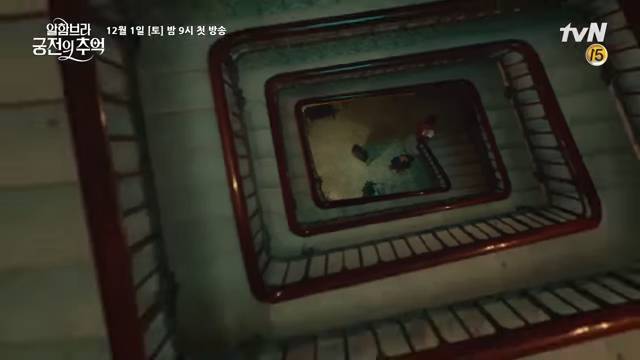
There are a lot of motifs in this drama that make it a joy to watch. The spiral staircase, at the top of which is Jin-woo’s room, cleverly illustrated the upstairs-downstairs dynamic between our male and female leads. It also represented Jin-woo’s downward spiral into the AR game, concluded in a dramatic fashion by his fall from the top floor at the hands of his nemesis. The rain, representing an ill omen and also a way to distinguish between reality and AR, was reminiscent of the spinning top in Inception.
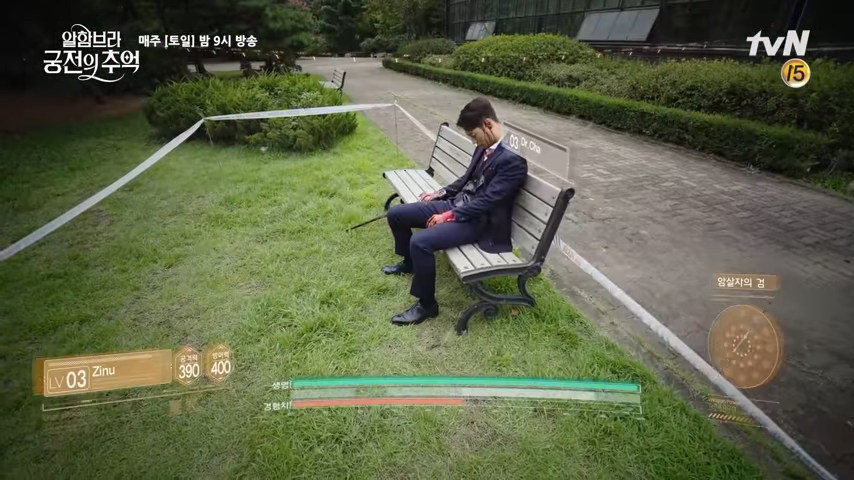
The pacing of the story is satisfying. There’s enough action to assuage the torrent of questions I have. However, the timeframe and chronology is proving a little distracting. Playing with chronology should add to the suspense of the drama, not detract from it. In the first half of the drama, I found myself getting confused by Jin-woo’s voiceovers in the past tense as well as the liberal use of time-jumps and flashbacks. Particularly in a drama where the world-building is complex enough, viewers could do without the added layer of complication that the non-linear chronology brings.
Despite some small niggles, Memories of the Alhambra has all of the ingredients that is satisfying me as a viewer, and more that haven’t been done before. The AR concept has been handled well helping it to break innovative ground. Utilising the characters, setting and plot, Memories has explored the collision of two worlds in a unique way. The implications of the blurred lines between fiction and reality have been compelling so far and I’m definitely intrigued to see how it will be resolved. So long as Memories doesn’t shy away from addressing the outstanding world-building questions, the drama has the potential to be a standard-setting show for the fantasy/sci-fi genre.
Sources: The Korea Times, South China Morning Post. Images via tvN.


